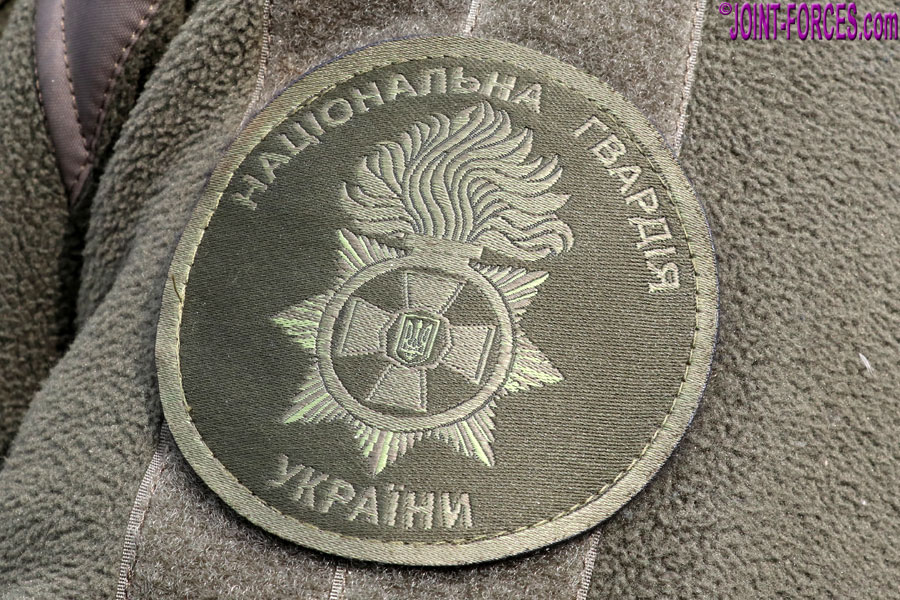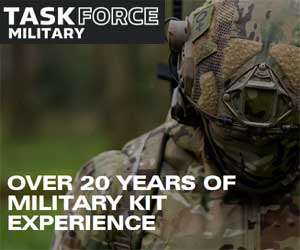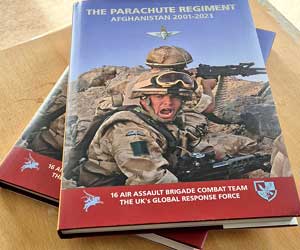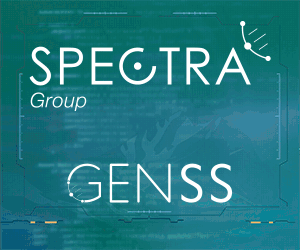The UK Defence Secretary has given a statement to the House of Commons on the situation in Ukraine and on Operation ORBITAL developments.
~
Whitehall, 18:45, 17 January 2022: Oral statement to Parliament .
Thank you Mr Speaker, with your permission I wanted to update the House on the situation in Ukraine. As of today, tens of thousands of Russian troops are positioned close to the Ukrainian border.
Their deployment is not routine, and they are equipped with tanks, armoured fighting vehicles, rocket artillery, and short-range ballistic missiles.
We, and our Allies, have legitimate and real cause for concern that the configuration and scale of the force being assembled, supported by Russian air and maritime long-range strike capabilities stationed in the region, could be used for the purpose of conducting a multi-axis invasion of Ukraine.
But whatever final decision the Russian Government takes on the use of such forces, their presence and levels of readiness are contributing to a destabilising and coercive atmosphere that risks miscalculation at best and – at worst – conflict.
Furthermore, in recent weeks, we have observed hardening Russian rhetoric, heightened cyber activity and widespread disinformation that could serve to provide false pretext for a Russian military intervention.
False narratives are very much part of the Kremlin’s playbook. They were used in 2008, before Russia’s invasion of Georgia; and in Ukraine in 2014. False narratives are being peddled again today.
Russia has suggested that their military build-up on the border of Ukraine is in response to NATO aggression and an agenda by the West to use Ukraine to “divide and rule” the Russian nation. They have put forward this outlandish notion that NATO is attempting to encircle Russia.
Let me be clear, Mr Speaker, no one is trying to “rule” the Russian nation. Only 1/16th of Russia shares a border with a NATO Ally. And NATO is – and always has been – a defensive alliance.
NATO – at its core – holds a belief that any country in the alliance, no matter how big or how small they are, is – by right of membership – owed a pledge of mutual defence. You attack one of us, you attack us all. From 12 founding countries in 1949, the NATO Alliance has grown to a total of 30 today.
These countries have joined the Alliance not because NATO is making them do so – but because of the freely expressed will of the governments and peoples of those countries. Countries choose NATO; NATO does not choose them. If Russia has concerns about the enlargement, it should perhaps ask itself why, when people were free to choose, they chose NATO.
NATO is an Alliance of like-minded nations who, as well as sharing a commitment to mutual defence, also share a set of common values, and sovereignty of other nations is respected by all. Each nation has a sovereign right to choose its own security arrangements. This is a fundamental principle of European security, one indeed to which Russia has subscribed in the past. And yet now Russia seeks a veto over who joins NATO.
The United Kingdom will stand up for the right of countries to choose their alliances. More important than the choice they make is the right to have that choice. On my recent visit to both Sweden and Finland, two non-NATO countries, it was clear that Kremlin attempts to dictate what sovereign states can or cannot choose had been rejected across the political spectrum.
Mr Speaker, I must stress: no one wants conflict. The Ukrainians are not seeking confrontation, despite the illegal annexation of their lands in Crimea and the occupation of Donbas. I am sure ordinary Russian people who remember the first Chechnya conflict and other older conflicts don’t want yet another quagmire either.
Last week there were intensive discussions on the international front to achieve a diplomatic solution to the current situation, including at NATO and the Organisation for Security and Cooperation in Europe (OSCE).
Engagement at the NATO-Russia Council made it clear that NATO is open to dialogue with Russia on a range of issues to protect Euro-Atlantic security, including risk reduction, transparency, arms control, and lines of communication. But we will not reward aggression.
And we are open to dialogue on a bilateral basis.
On 23 December, the Chief of the Defence Staff Admiral Tony Radakin spoke with his Russian counterpart, General Gerasimov. In their call, they agreed the vital importance of maintaining communications to understand each other’s intentions and to avoid miscalculation.
When the Prime Minister spoke to President Putin on 13 December, he expressed the United Kingdom’s deep concern over the build-up of Russian forces on Ukraine’s border, and also reiterated the importance of working through diplomatic channels to de-escalate tensions and identify durable solutions.
The Foreign Secretary continues to engage with her Russian Foreign Minister Sergei Lavrov, including recently in person at the margins of the OSCE Ministerial Council in Stockholm on 2 December.
Russia has the largest conventional forces of any single nation in Europe. It has a proud history. We have fought together. We celebrated the courage of the Arctic Convoys and their 80th anniversary last year. And Russia is a nuclear power. It does not have anything to fear from NATO or Ukraine or the other countries that strive peacefully on the continent of Europe.
So, today, I am extending an invitation to my Russian counterpart, Sergei Shoigu, to visit London in the next few weeks. We are ready to discuss issues related to mutual security concerns and engage constructively, in good faith.
The UK’s position on Ukraine is also clear. We unequivocally support its sovereignty and territorial integrity within its internationally recognised borders, including Crimea. Ukraine is an independent, sovereign country of proud, independent Ukrainian people.
The UK Ministry of Defence already has a longstanding relationship with our Ukrainian counterparts, and we continue to provide support in many areas including security assistance and defence reform.
Since 2015, the UK has helped to build the resilience and capabilities of the Ukrainian armed forces through Operation ORBITAL, which has trained over 22,000 Ukrainian troops. And we maintain the right to deliver bilateral support to a sovereign nation when requested, in areas that will better help them defend themselves.
It is important that Ukraine has the capability to defend itself. After Ukraine lost large parts of its navy to Russia’s illegal occupation of Crimea, it became important to help Ukraine build up and sustain a naval capability.
We should not forget, Mr Speaker, the thousands of Ukrainians who have lost their lives defending their country, and who every day are murdered by snipers from across the divide.
That is why in 2019 I expanded Operation ORBITAL to include naval cooperation. And that is why last year we agreed a range of measures including supplying Ukraine with two mine counter-measure vessels as well as agreeing the joint production of eight new ships – equipped with modern weapons systems. Defensive weapon systems.
As I said in this House last week, the Framework Agreement presented to Parliament in November 2021 affirmed the principle that the UK will provide both training and defensive capabilities to Ukraine – to help them better defend themselves.
Within that same principle, I can today confirm to the House that, in light of the increasingly threatening behaviour from Russia, and in addition to our current support, the UK is providing a new security assistance package to increase Ukraine’s defensive capabilities.
We have taken the decision to supply Ukraine with light, anti-armour, defensive weapon systems. A small number of UK personnel will also provide early-stage training for a short period of time, within the framework of Operation ORBITAL, before then returning to the United Kingdom.
This security assistance package complements the training and capabilities that Ukraine already has, and those that are also being provided by the UK and other Allies in Europe and the United States. Ukraine has every right to defend its borders, and this new package of aid further enhances its ability to do so.
Let me be clear: this support is for short-range, and clearly defensive weapons capabilities; they are not strategic weapons and pose no threat to Russia. They are to use in self-defence and the UK personnel providing the early-stage training will return to the United Kingdom after completing it.
The Prime Minister has been clear that any destabilising action by Russia in Ukraine would be a strategic mistake that would have significant consequences. That is why there is a package of international sanctions ready to go that will make sure that the Russian government is punished if it crosses the line. But the costs of an invasion will not just be felt by the West.
I have visited Ukraine five times since 2016, and I know that the Ukrainians are a proud people who will stand and fight – for their country, for democracy and for freedom.
Any invasion will not be viewed as a “liberation” but as occupation, and I fear that it could lead to huge loss of life on all sides.
The current difficult relationship with the Kremlin is not the one we wish to have in the United Kingdom. It does not have to be this way. The United Kingdom respects the people, culture and history of Russia.
We have more in common than we may think – culturally, historically and technologically. We wish to be friends with the Russian people as we have been for hundreds of years.
And there is a world in which we can establish a mutually beneficial relationship with Russia, working together on shared areas of interest and addressing mutual security concerns. This current gap is wide but not unbridgeable.
I still remain hopeful that diplomacy will prevail. It is President Putin’s choice; whether to choose diplomacy and dialogue or conflict and the consequences.
But Russia’s current behaviour is not only threatening the sovereignty of a proud nation state; it is also destabilising the rules-based international order and challenging the values that underpin it.
That is why it is all the more important that we stand in solidarity with those who share our values: including our NATO Allies and partners like Sweden, Finland, and Ukraine.
~$~




















